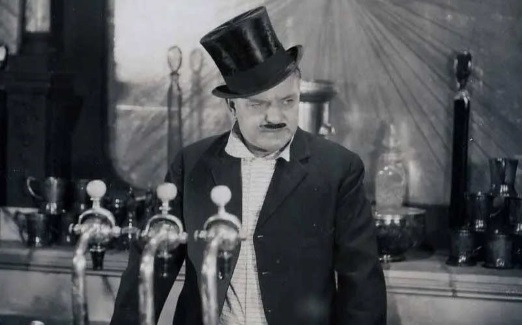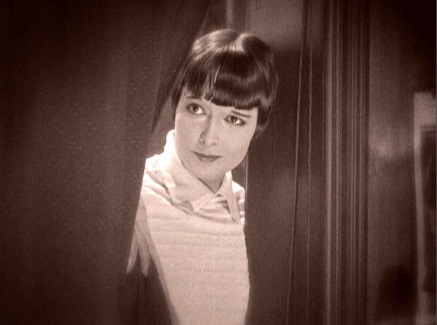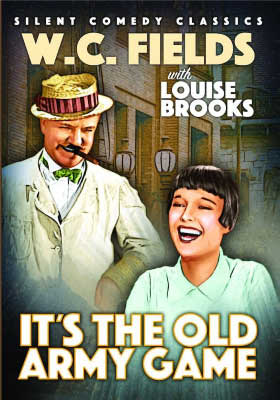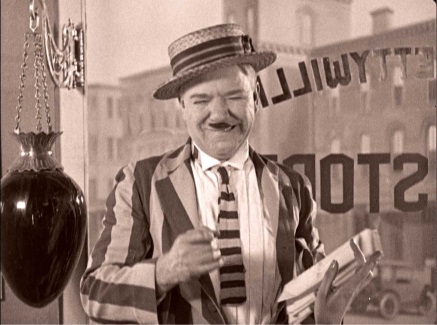I hadn't even realized
that W.C. Fields was a silent comedy star. Not up there with the silent comedy
greats but reasonably popular. It is hard to think of him without his slow
bourbon filled drawl throwing out insults, wisecracks and quips as only he
could do. Like so many of these early comedians, he came out of vaudeville
where his act was juggling - apparently a very good one - and then over time
he began to add comedy. He went from there to Broadway with the successful
Poppy which D.W. Griffith made as Sally of the Sawdust in 1925 with Fields
in it. This film was his first starring role though and I would like to say
it felt like meeting genius, but it runs on much too long. Most sources have
it at 77-minutes but the version I saw was 104 minutes and at times it felt
it.

Some of his later ticks are on full display - his dislike of children, of
being bothered by everything, of being his own worst enemy, of grumpy disposition
- a general misanthropy that he carries in every expression and movement.
He also has a moustache which he kept until he moved to sound films. It is
a small offensive moustache that looks like it wants to jump off his face
to freedom. From certain angles, it looks like it is pasted to the bottom
of his nose. His agent told him that the audience didn't like it, to which
he replied, that is why I keep it. Drinking is not yet part of his act and
he looks thinner with a less bulbous nose.

This is a series of sketches tied together - some from his stage shows and
some that would later be used in talkies. Too many of the bits have little
payoff and are too slow to move along. He owns a drug store - the old- fashioned
kind that sold soda pop, stamps and medicine. Where people came to use the
telephone. In the first bit, a woman relentlessly rings the bell as he sleeps
upstairs - when he finally gets to the door, she demands a 2-cent stamp.
Then puts the letter in the fire box which brings the firetrucks - and his
assistant. And what an assistant. Louise Brooks.

Absolutely mesmerizing in the short hair style that she became famous for.
Every time she is on screen, I suddenly started paying attention again. She
has this knowing look to her - like she gets it - when men are around her,
she understands that she is desirable and that they want her. All shown with
her eyes. This was three years before Europe beckoned and I can understand
why Pabst saw something there for Lulu that Hollywood wasn't able to or allowed
to. She had already conquered Hollywood socially with friendships and affairs.
She was to marry the director of this film, A. Edward Sutherland, but her
continuing affairs put that on the rocks within two years. This film didn't
do well at the box office and isn't highly regarded in the W.C. Fields fan
world - but a few of his later silents get more respect. It was no problem
for him to shift into talkies with his stage experience. Oh, his name here
is Prettywillie. Yes, I expect willie was slang back then.




